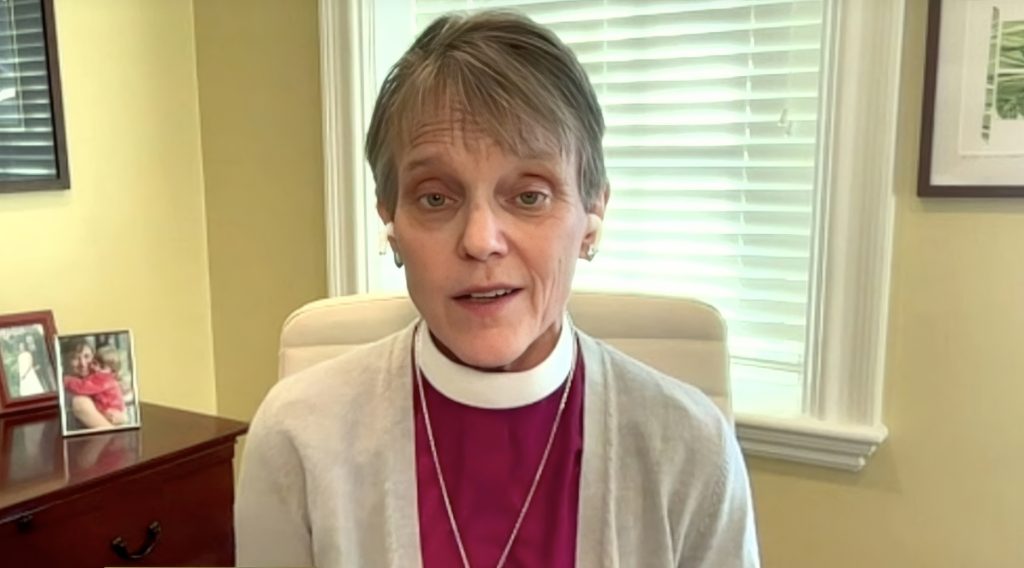
In a striking revelation, Bishop Mariann Budde of Washington, D.C., who once publicly criticized former President Donald Trump’s stance on immigration, is now under scrutiny for allegedly receiving $53 million in taxpayer money through her organization, Episcopal Migration Ministries (EMM). This information has stirred controversy, questioning the integrity of her previous moral stances.
Bishop Budde made headlines when she directly challenged Trump during his inaugural prayer service, urging him to show compassion towards vulnerable groups, including illegal aliens and the LGBTQ community. “Let me make one final plea, Mr. President,” Budde said at the time. “As you told the nation yesterday, you have felt the providential hand of a loving God. In the name of a loving God, to have mercy on the people in our country who are scared now.”
However, this new development casts a shadow over her advocacy. According to sources, her organization has been benefiting significantly from federal contracts aimed at resettling migrants, raising eyebrows about the sincerity behind her public criticisms.
Critics argue that this financial arrangement with the government starkly contrasts with her public denunciations of Trump’s policies. “It’s the height of hypocrisy,” stated one conservative commentator in posts found on X. “She preaches compassion but her organization cashes in on taxpayer dollars.”
The controversy was further fueled by Trump’s response to Budde’s remarks at the prayer service, where he labeled her as “nasty” and accused her of bringing politics into a religious setting inappropriately. “She brought her church into the World of politics in a very ungracious way. She was nasty in tone, and not compelling or smart,” Trump had retorted.
Supporters of Bishop Budde argue that her organization’s work with migrants is crucial and that accepting government funding for such initiatives is a common practice among religious institutions involved in humanitarian efforts. They defend her by asserting that the focus should be on the positive impact of the work rather than the source of funding.
The debate has transcended beyond mere financial transactions to touch upon broader themes of moral integrity in public statements versus actions. With the information circulating on social media and in various news outlets, this case exemplifies the complex interplay between politics, religion, and public policy in contemporary America.
As this story develops, it will be interesting to see how Bishop Budde and her organization respond to these allegations and whether this will lead to broader discussions about the role of religious leaders in political discourse and their financial dealings with government entities.

